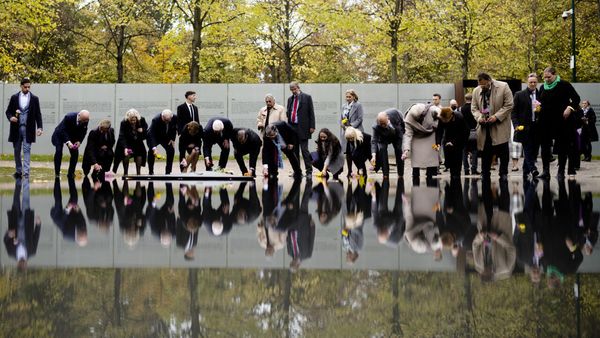
YANGON • When the former United Nations chief Kofi Annan wrapped up his year-long probe into Myanmar's troubled north-west on Aug 24, he publicly warned that an excessive army response to violence would only make a simmering conflict between Rohingya insurgents and Myanmar security forces worse.
Just three hours later, shortly after 8pm, Rohingya insurgent leader Ata Ullah sent a message to his supporters, urging them to head to the foot of the remote Mayu mountain range with metal objects to use as weapons.
A little after midnight, 600km north-west of the country's largest city, Yangon, a rag-tag army of Rohingya militants - wielding knives, sticks, small weapons and crude bombs - attacked 30 police posts and an army base.
"If 200 or 300 people come out, 50 will die. God willing, the remaining 150 can kill them with knives," said Ata Ullah in a separate voice message to his supporters. It was circulated around the time of the offensive on mobile messaging apps and a recording was subsequently reviewed by Reuters.
The assault by Ata Ullah's group, the Arakan Rohingya Salvation Army (Arsa), was its biggest yet. Last October, when the group first surfaced, it attacked just three police border posts using about 400 fighters, according to Myanmar government estimates.
The Myanmar army is now estimating up to 6,500 people took part in the August offensive.
Its ability to mount a much more ambitious assault indicates that many young Rohingya men have been galvanised into supporting Arsa following the army crackdown after the October attacks, according to interviews with more than a dozen Rohingya and Rakhine villagers, members of the security forces and local administrators. The brutal October response led to allegations that troops burned down villages and killed and raped civilians.
The crisis in ethnically-riven Rakhine state is the biggest to face Myanmar's leader Aung San Suu Kyi, and her handling of it has been a source of disillusionment among the democracy champion's former supporters in the West.
Rohingya leaders and some policy analysts say Ms Suu Kyi's failure to tackle the grievances of the Muslim minority, who have lived under apartheid-like conditions for generations, has bolstered support for the militants. The fledgling militia has been transformed into a network of cells in dozens of villages, capable of staging a widespread offensive.
Myanmar's government has declared Arsa a terrorist organisation. It has also accused it of killing Muslim civilians to prevent them from cooperating with the authorities, and of torching Rohingya villages, allegations the group denies.
The latest assault has provoked a major counter-offensive in which the military says it killed almost 400 insurgents and in which 13 members of the security forces have died. Rohingya villagers and human rights groups say the military has also attacked villages indiscriminately and torched homes. The Myanmar government says it is carrying out a lawful counter-terrorism operation and that the troops have been instructed not to harm civilians. Tens of thousands of Rohingya have fled to Bangladesh since Aug 25, leading to fears of a humanitarian crisis.
A Rohingya community leader who has stayed in northern Rakhine said that while the rest of Myanmar enjoyed new freedoms under Ms Suu Kyi after decades of military rule, the Muslim minority have been increasingly marginalised. Support for the insurgents grew after the military operation last year, he said.
Mr Rohi Mullarah, a village elder from the Kyee Hnoke Thee village in northern Buthidaung, said Arsa leaders sent their followers regular and frequent messages via apps like WhatsApp and WeChat, encouraging them to fight for freedom and human rights and enabling them to mobilise many people without the risk of being caught going into the heavily militarised areas to recruit. "They mainly sent phone messages to the villagers, they didn't move people from place to place," he said.
In recent months, there had been reports of killings of local administrators, government informers and village chiefs in the Rakhine region, leading to speculation the insurgents were adopting brutal tactics to stop information on their activities from leaking to the security forces.
"They cut out the government communication by instigating a campaign of fear and took charge in the region," said Rakhine police chief Sein Lwin.
REUTERS







